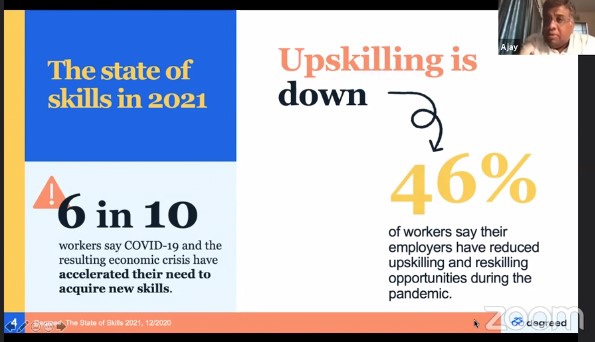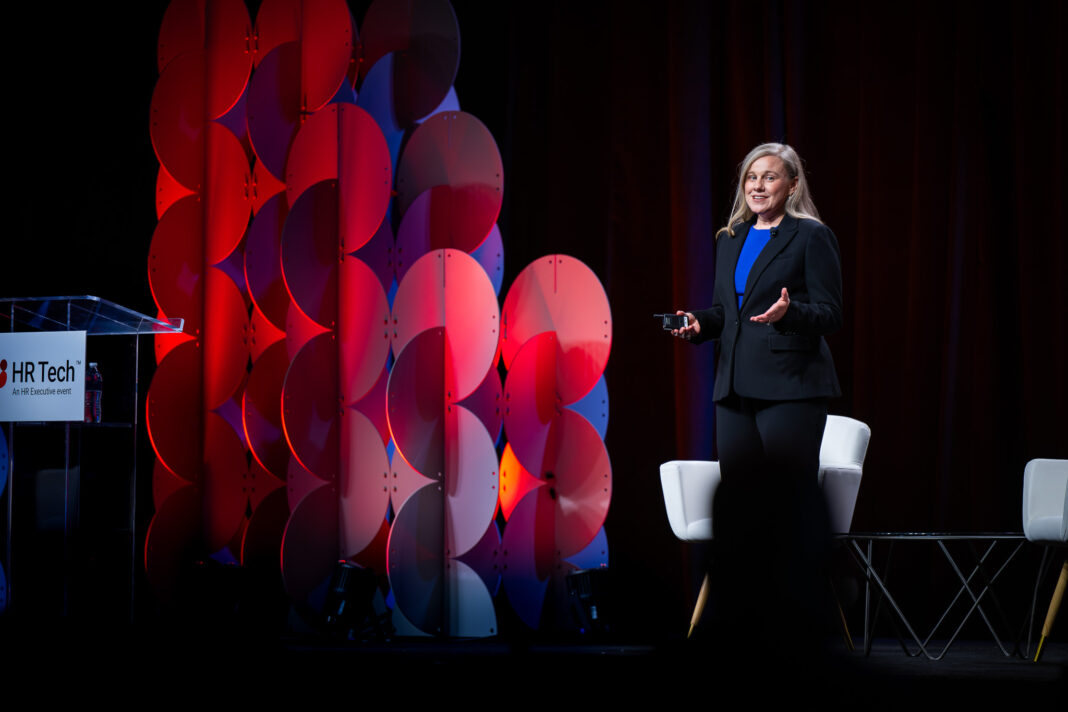L&D driving organisational growth in a new world of work
- Shawn Liew

In a world of work that continues to be uncertain because of the pandemic, what used to work for organisations in the past may no longer be effective. In particular, organisations need to rethink how they communicate with their employees, said Dani Johnson, Co-Founder and Principal Analyst, RedThread Research, and Heather Gilmartin Adams, Senior Analyst, RedThread Research.
Kicking off Learning Technologies Asia 2021, they advised organisations to stop viewing employees a mere cogs in a machine. Instead, see them as human and empower them with the right tools to serve the organisation’s customers. Recognise that employees are worth developing, Johnson said, pointing that out that successful organisations are usually those that choose to develop employees over hiring externally.
Organisations that respond better to their markets also look for opportunities to build skills as part of work, Adams added, highlighting how learning and development (L&D) needs to be more holistic and inclusive in how it approaches learning in a changing world.
The COVID-19 crisis has accelerated the digitisation of customer interactions by several years. This in turn, has seen companies whose industry 4.0 implementation is more mature reporting a stronger ability to respond to the crisis, observed Dr Samson Tan, Head, Center for Innovation in Learning, National Institute of Education (NIE), Singapore.
Drawing on his experiences with NIE, Dr Tan highlighted the “distinctive rise” of online learning, whereby teaching is undertaken remotely and on digital platforms. This in turn, has created opportunities for universities to develop a virtual culture through imaginative and creative implementation, as well as an innovative mentality, which he believes can be successfully replicated in workplace learning.
The lack of skills within an organisation equates to not a personal risk, but also a business risk, said Ajay Sridharan, Vice President, India/South East Asia & Middle East, Degreed.
Drawing on key findings from Degreed’s State of Skills report, he highlighted how while 59% of employees believe the pandemic has accelerated their need to acquire new skills, nearly half (46%) of their employers have conversely reduced upskilling and reskilling opportunities and budgets.
Cautioning that this imbalance jeopardises workforce wellbeing, Sridharan urged HR leaders to ask themselves: Do you know the skills that your organisations need? Based on Degreed’s report, only 39% of HR leaders say they have enterprise-level insights on which employees are critical for future success based on performance, skills or competencies., driving the need to create career experiences that work for your workforce.
To meet the demands of evolving technology in the L&D space, mindsets need to be addressed, said Vinisha Jayaswal, Chief Learning Officer, Apollo Hospitals Enterprise.
HR leaders need to guide their organisation to adopt a team/collaboration and growth mindset. Those with a growth mindset, she explained, have a strong sense of ownership, are more collaborative and provide higher employee engagement. Complex problem solving and critical thinking skills also need to be developed, alongside a willingness to adapt to technology.
The role of L&D is changing, and the modern workforce needs collaboration more than ever, Jayaswal concluded, urging L&D professionals to learn, unlearn and re-learn, and to move away from a “service provider” role to a “solution provider” role.
With transformation now an everyday reality in the workplace, reskilling is the biggest opportunity and challenge for organisations, suggested Annee Bayeux, Chief Learning Strategist, EdCast.
CLOS today, are asking themselves how they can support the business in accelerating digital transformation, what they can do to ensure the organisation has the right skills at the right time to stay competitive, and where L&D teams are skilled and ready to lead transformation, she pointed out.
To thrive in a new remote-first world, Bayeux offered the following tips:
- Develop a robust and holistic engagement strategy.
- Design learning strategies to support agile learning.
- Focus on key employee touchpoints such as onboarding and development.
- Focus your talent experience tech stack on consumer-grade features personalised for the modern learner.
- Futureproof your L&D organisation by upskilling and reskilling.
Learning Technologies Asia 2021 continues on Wednesday, March 24, with presentations from Joanne Hor, Chief Learning Officer, Group Human Resources, DBS Bank, who will discuss the role of L&D in the post-pandemic ‘never normal’.
She will be joined by Benny Ramos, Director, Global Solution Practice, Skillsoft, who will share the skills that organisations should focus on in the hybrid workplace, while Dr CJ Meadows, Professor of Design Thinking & Innovation Center Director, S P Jain School of Global Management, will highlight how organisations can combine the best of working and learning, both virtually and physically.
Also joining us are Roby Tatan, Head of L&D, Sinar Mas Land, Indonesia, who will share his organisation’s L&D strategy on engaging employees; and Aek Ussivakul, Senior Vice President, Digital Transformation Center of Excellence, Siam Commercial Bank, who will present his vision of the future of learning in an era of capability-led transformation.
Click here to reserve your seat and be part of the L&D discussion at Learning Technologies Asia 2021!






